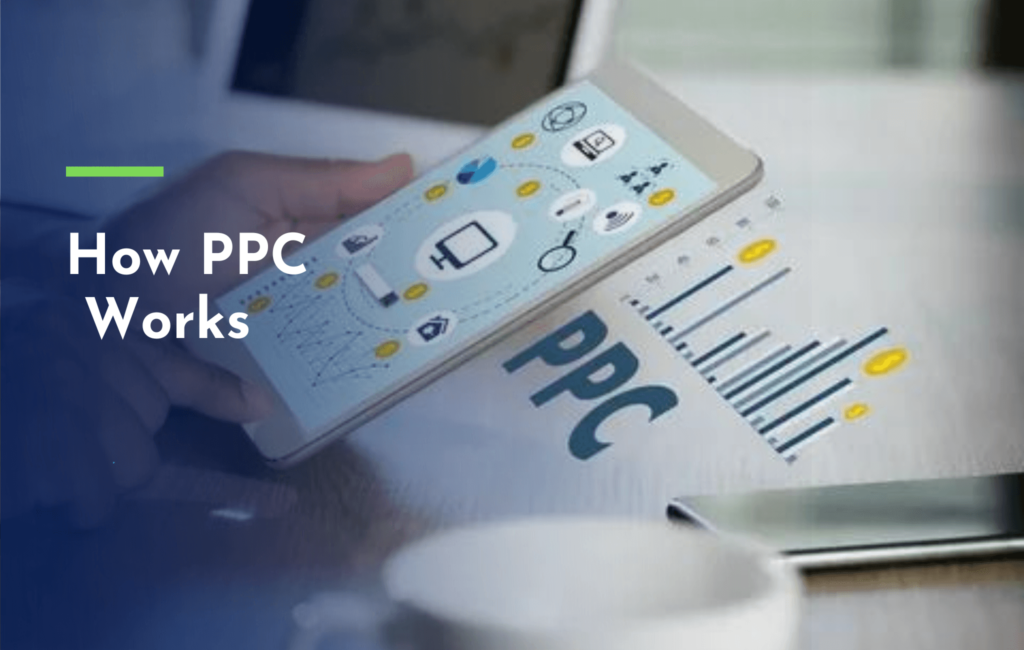
Pay-per-click (PPC) advertising is a cornerstone of Digital Marketing, offering businesses a way to gain immediate visibility on search engines and other platforms. Whether you’re a seasoned marketer or new to the world of online advertising, understanding how PPC works is crucial for maximizing your ROI and staying competitive. This guide will walk you through the essentials of PPC, from the basic principles to advanced strategies that can help you run successful campaigns.
What is PPC?
PPC, or Pay-Per-Click, is an online advertising model where advertisers pay a fee each time their ad is clicked. Essentially, it’s a way of buying visits to your site, rather than attempting to “earn” those visits organically. The most common platform for PPC is Google Ads, but it also extends to social media platforms like Facebook, LinkedIn, and Instagram.
How PPC Differs from Other Advertising Models
PPC is distinct from other advertising models, such as CPM (Cost Per Mille, or Cost Per Thousand Impressions), where you pay based on how many people see your ad, regardless of whether they interact with it. PPC is particularly appealing because you’re only paying for actual engagement—when someone clicks on your ad.
The Basics of Bidding in PPC
The PPC model operates on a bidding system. Advertisers bid on keywords that they believe their target audience will search for. The amount you’re willing to pay per click (your bid) plays a significant role in determining how often and where your ad appears.
How PPC Works
The Auction System
PPC advertising operates on an auction system that occurs every time a user searches for a keyword. When a user enters a query, Google processes the request and runs the auction for the advertisers’ bids. The auction determines which ads will appear on the search engine results page (SERP) and in what order.
Ad Rank and Quality Score
Your ad’s position on the SERP is determined by its Ad Rank, which is calculated using two main factors: your bid amount and your ad’s Quality Score. Quality Score is an estimate of the quality of your ads, keywords, and landing pages. High-quality ads can lower your cost per click (CPC) and improve your ad position.
Cost Per Click (CPC) and Cost Per Impression (CPM)
CPC is the amount you pay each time someone clicks on your ad. It’s the most common pricing model in PPC. On the other hand, CPM (Cost Per Mille) refers to the cost per 1,000 impressions—essentially, how much you pay when your ad is shown 1,000 times, regardless of whether it’s clicked or not.
Setting Up a PPC Campaign
Choosing the Right Platform
Selecting the appropriate platform for your PPC campaign is crucial. Google Ads is the most popular choice due to its vast reach, but other platforms like Bing Ads, Facebook Ads, and LinkedIn Ads can also be effective depending on your target audience.
Keyword Research and Selection
Keyword research is the foundation of any PPC campaign. Tools like Google Keyword Planner can help you find relevant keywords that your target audience is searching for. Selecting the right keywords involves balancing search volume with competition and relevance to your business.
Creating Effective Ad Copy
Your ad copy is your first point of contact with potential customers, so it needs to be compelling. Effective ad copy includes a clear call to action (CTA), highlights unique selling points, and is tailored to the intent behind the user’s search query.
The Role of Landing Pages in PPC
Importance of Landing Page Relevance
Once a user clicks on your ad, they should be directed to a landing page that is relevant to the ad content. A relevant landing page improves user experience and can lead to higher conversion rates, which in turn improves your Quality Score.
Best Practices for Landing Page Optimization
A well-optimized landing page should be clear, concise, and focused on a single call to action. It should load quickly, be mobile-friendly, and contain relevant information that matches the ad content. A/B testing different elements of your landing page can help you determine what works best.
How to Link Ads to Landing Pages for Maximum Effectiveness
Ensure that your ads are directly related to the content on the landing page. For instance, if your ad promotes a specific product, the landing page should feature that product prominently. Consistency between the ad and landing page increases user satisfaction and boosts conversion rates.
Understanding Ad Extensions
Types of Ad Extensions
Ad extensions are additional pieces of information you can add to your ads, such as your phone number, additional site links, or a location. There are several types of ad extensions, including call extensions, sitelink extensions, and location extensions.
How Ad Extensions Improve Click-Through Rates (CTR)
Ad extensions make your ads more visible and provide users with more reasons to click on them. By offering extra information upfront, ad extensions can significantly improve your CTR and overall campaign performance.
Best Practices for Using Ad Extensions
Use ad extensions that are relevant to your business goals. For example, if you want to drive more phone calls, use call extensions. Ensure that your extensions are updated regularly and accurately reflect the content of your ads.
Targeting in PPC
Audience Targeting Options
PPC platforms offer a variety of targeting options to help you reach the right audience. These include demographic targeting (age, gender, income level), device targeting (mobile vs. desktop), and behavioral targeting (based on past online behavior).
Geotargeting and Time Targeting
Geotargeting allows you to display your ads in specific locations, which is ideal for businesses that operate in certain areas. Time targeting, or dayparting, lets you show your ads during specific times of the day or week, optimizing your budget by reaching users when they are most likely to convert.
Remarketing Strategies
Remarketing involves targeting users who have previously interacted with your website or ads but did not convert. This strategy helps keep your brand top-of-mind and encourages users to return and complete their purchase or inquiry.
Monitoring and Optimizing Your PPC Campaign
Analyzing PPC Metrics
To ensure your PPC campaign is effective, you must regularly monitor key metrics such as CTR, conversion rate, and return on ad spend (ROAS). These metrics provide insights into what’s working and what needs improvement.
A/B Testing for Ads
A/B testing involves creating two versions of an ad to see which performs better. This could include testing different headlines, images, or calls to action. Regularly conducting A/B tests can lead to continuous improvements in your campaign’s performance.
Making Data-Driven Decisions for Optimization
Use the data from your PPC metrics to make informed decisions about your campaign. This could involve adjusting bids, refining keywords, or changing ad copy. Data-driven decisions help optimize your campaign for better results.
The Role of Quality Score in PPC
Factors that Influence Quality Score
Quality Score is influenced by several factors, including the relevance of your keywords to the ad and landing page, CTR, and the overall user experience on your landing page. A higher Quality Score can lead to lower costs and better ad positions.
How to Improve Your Quality Score
Improving your Quality Score involves optimizing your keywords, creating compelling ad copy, and ensuring your landing pages are relevant and user-friendly. Regularly reviewing and refining these elements can lead to better campaign performance.
The Impact of Quality Score on Cost and Ad Rank
A high Quality Score can lower your CPC and improve your Ad Rank, which determines your ad’s position on the SERP. This means you can achieve better visibility at a lower cost, maximizing the efficiency of your ad spend.
Common PPC Mistakes to Avoid
Overbidding or Underbidding
Bidding too high can quickly drain your budget without guaranteeing conversions, while bidding too low might prevent your ads from appearing altogether. It’s important to find the right balance to ensure your ads are competitive.
Ignoring Negative Keywords
Negative keywords prevent your ads from showing up for irrelevant searches, saving you money on clicks that are unlikely to convert. Ignoring them can result in wasted ad spend and lower campaign performance.
Failing to Monitor Campaign Performance
PPC campaigns require regular monitoring and adjustments to stay effective. Failing to keep an eye on performance metrics can lead to missed opportunities and unnecessary spending.
The Future of PPC
Emerging Trends in PPC
As technology evolves, so does PPC advertising. Emerging trends include the increased use of AI and machine learning for campaign optimization, the rise of voice search, and the growing importance of video ads.
The Impact of AI on PPC
AI is playing a larger role in PPC by automating tasks such as bidding, keyword selection, and even ad creation. This can lead to more efficient campaigns, but it’s still important for human marketers to provide strategic direction.
Preparing for the Future of Paid Advertising
To stay ahead in the ever-changing world of PPC, marketers need to stay informed about new trends and technologies. Continual learning and adaptation are key to maintaining successful campaigns in the future.
Conclusion
Understanding how PPC works is essential for any business looking to succeed in digital marketing. From setting up your first campaign to optimizing it for better performance, PPC offers a powerful way to reach your target audience and achieve your business goals. By staying informed about the latest trends and best practices, you can ensure that your PPC campaigns continue to deliver strong results in the ever-evolving digital landscape.
FAQs
What is the difference between PPC and SEO?
PPC involves paying for ads that appear at the top of search results, while SEO focuses on organic search rankings through content optimization and link building.
How does bidding work in PPC?
In PPC, advertisers bid on keywords, and the highest bidder, combined with a high-quality score, typically wins the ad placement in the search results.
Can small businesses benefit from PPC?
Yes, small businesses can benefit from PPC by targeting specific keywords and audiences, allowing for efficient use of their advertising budget.
What are negative keywords in PPC?
Negative keywords prevent your ads from showing up in searches that are not relevant to your business, helping you avoid wasting money on unqualified clicks.
How often should I review my PPC campaigns?
It’s recommended to review your PPC campaigns at least weekly to monitor performance, adjust bids, and refine keywords based on the latest data.
